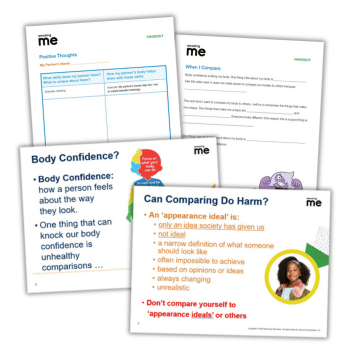“Simply talking about wellbeing won’t help”

Kat Howard explains why wellbeing efforts in school should involve less discussion and more concerted action…

- by Kat Howard

The title of my book, Stop Talking About Wellbeing, ruffled a few feathers when it was first announced. Why don’t I care about wellbeing? Why would I be so dismissive of such a pertinent topic? I stand by the title, because I actually wanted to convey quite the opposite.
Stress and mental health issues among teachers are now so high that some researchers have started comparing what we in profession go through to the experiences of NHS staff and police officers. If teachers are now being discussed in the same way as those whose jobs involve daily trauma and emotional labour, then it’s fair to say that discussion alone is no longer a sufficient strategy for improving the situation.
Narratives of nonsense
While researching the book, I spoke to thousands of teachers and encountered many narratives of nonsense. Teachers sitting through CPD sessions intended to help ‘improve their wellbeing’ until past 6pm. Mandatory workshops scheduled for the heaviest marking periods of the year. The requirement to come up with ‘academic year resolutions’, such as drinking more water or eating lunch in the staffroom. Writing Stop Talking About Wellbeing was like scratching an itch.
I’ve seen some schools become relentlessly focused on improving their working conditions in outlandish ways, without stopping to consider that many issues around workload and staff’s sense of purpose could be better solved by simply having the right conversations about the right things.
Everyone working in the profession is trying their best. Current work around wellbeing in schools may often give off a sense of tokenism that’s poorly received by staff, but to me, the good intentions involved at least send out a hopeful message. The implication is that all of us are striving to improve the way we work.
Reducing workload pressures in schools ultimately requires a dialogue between SLT and their teams. Indeed, many school leaders work extremely hard to ensure that their staff have the autonomy they need to deliver a curriculum that inspires and empowers their students, without suffering from burnout in the process. Given this symbiosis, what can senior leaders therefore do to improve conditions for school staff?
Strong connections
Auditing how time is allocated in schools is a great start. Collaborative planning, better feedback policies and factoring in the time cost to any proposed changes or initiatives will help to build a culture that truly values staff.
There are many approaches to feedback that will not only reduce workload, but also likely improve student performance. There’s little room in schools any more for the triple marking of old, so let’s instead lead with the following questions: ‘Will this improve the quality of staff working conditions?’ and ‘Will it help the children learn?’
We’re much more likely to remain at a place of work if we’ve built strong connections with colleagues. Lengthy email threads, isolated classrooms, a lack of community – these all work to dissolve those important connections. Senior leaders should be responsible for applying a firm, whole-school approach to reducing email use, which will create space for discussions around curriculum, pedagogy and our love for our respective subjects. The connection between teachers’ wellbeing and their ability to deliver a decent curriculum is hugely underestimated. If we want to engage teachers, we have to look carefully at what we’re actually asking them to teach.
Reducing workload isn’t just about freeing up time, but about using that additional time in a way that feels meaningful and valuable to our overarching sense of purpose.
Kat Howard is an assistant principal at The Duston School, an all-through school in Northamptonshire; Stop Talking About Wellbeing is available now, published by John Catt










